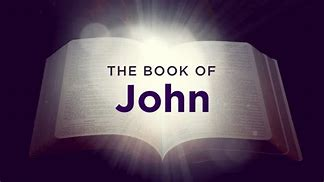Jesus Feeds the Five Thousand - {Interlinear <Greek>}
6:1 - After {Μετὰ<meta>} this {ταῦτα<houtos>} Jesus {ὁ Ἰησοῦς<ho Iēsous>} went away {ἀπῆλθεν<aperchomai>} to the other side {πέραν<peran>} of → the {τῆς <ho>} Sea {θαλάσσης<thalassa>} of → Galilee, {τῆς Γαλιλαίας<ho Galilaia>} which • is • the • Sea • of → Tiberias. {τῆς Τιβεριάδος.<hoTiberias>}
6:2 - And {δὲ<de>} a → large {πολύς,<polys>} crowd {ὄχλος<ochlos>} was → following {ἠκολούθει<akoloutheō>} him, {αὐτῷ<autos>} because {ὅτι<hoti>} they → saw {ἑώρων<horaō>} the {τὰ<ho>} signs {σημεῖα<sēmeion>} that {ἃ<hos>} he → was → doing {ἐποίει<poieō>} on {ἐπὶ<epi>} the {τῶν<ho>} sick. {ἀσθενούντων.<astheneō>}
6:3 - • {δὲ<de>} Jesus {Ἰησοῦς<Iēsous>} went up {ἀνῆλθεν<anerchomai>} on {εἰς <eis>} the {τὸ<ho>} mountain, {ὄρος<oros>} and {καὶ<kai>} there {ἐκεῖ<ekei>} he → sat {ἐκάθητο<kathēmai>} down ← with {μετὰ<meta>} his {αὐτοῦ.<autos>} disciples. {τῶν μαθητῶν <homathētēs>}
6:4 - Now {δὲ<de>} the {τὸ<ho>} Passover, {πάσχα<pascha>} the {ἡ<ho>} feast {ἑορτὴ<heortē>} of → the {τῶν<ho>} Jews, {Ἰουδαίων.<Ioudaios>} was {ἦν<eimi>} at hand. {ἐγγὺς <engys>}
6:5 - Lifting up {Ἐπάρας<epairō>} his • eyes, {τοὺς ὀφθαλμοὺς<ho ophthalmos>} then, {οὖν<oun>} and {καὶ<kai>} seeing {θεασάμενος<theaomai>} that {ὅτι<hoti>} a → large {πολὺς<polys>} crowd {ὄχλος<ochlos>} was → coming {ἔρχεται<erchomai>} toward {πρὸς<pros>} him, {αὐτὸν<autos>} Jesus {ὁ Ἰησοῦς<ho Iēsous>} said {λέγει <legō>} to {πρὸς<pros>} Philip, {Φίλιππον·<Philippos>} “Where {πόθεν<pothen>} are → we → to → buy {ἀγοράσωμεν<agorazō>} bread, {ἄρτους,<artos>} so that {ἵνα <hina>} these {οὗτοι;<houtos>} people ← may → eat?” {φάγωσιν<esthiō>}
6:6 - He → said {ἔλεγεν<legō>} this {τοῦτο<houtos>} • {δὲ<de>} to → test {πειράζων <peirazō>} him, {αὐτόν·<autos>} for {γὰρ<gar>} he → himself {αὐτὸς<autos>} knew {ᾔδει <oida>} what {τί<tis>} he → would {ἔμελλεν<mellō>} do. {ποιεῖν.<poieō>}
6:7 - Philip {Φίλιππος·<Philippos>} answered {ἀπεκρίθη<apokrinomai>} him, {αὐτῷ <autos>} “Two hundred {διακοσίων<diakosioi>} denarii {δηναρίων<dēnarion>} worth ← of • bread {ἄρτοι<artos>] would → not {οὐκ<ou>} be → enough {ἀρκοῦσιν<arkeō>} for • each {ἕκαστος<hekastos>} of • them {αὐτοῖς<autos>} to {ἵνα<hina>} get {λάβῃ.<lambanō>} a {τι <tis>} little.” {βραχύ<brachys>}
6:8 - One {εἷς<heis>} of {ἐκ<ek>} his {αὐτοῦ,<autos>} disciples, {τῶν μαθητῶν<ho mathētēs>} Andrew, {Ἀνδρέας<Andreas>} Simon {Σίμωνος<Simōn>} Peter’s {Πέτρου· <Petros>} brother, {ὁ ἀδελφὸς<ho adelphos>} said {Λέγει<legō>} to → him, {αὐτῷ <autos>}
6:9 - “There → is {ἔστιν<eimi>} a → boy {παιδάριον<paidarion>} here {ὧδε<hōde>} who {ὃς<hos>} has {ἔχει<echō>} five {πέντε<pente>} barley {κριθίνους<krithinos>} loaves {ἄρτους<artos>} and {καὶ<kai>} two {δύο<dyo>} fish, {ὀψάρια·<opsarion>} but {ἀλλὰ<alla>} what {τί<tis>} are {ἐστιν<eimi>} they {ταῦτα<houtos>} for {εἰς<eis>} so many?” {τοσούτους; <tosoutos>}
6:10 - Jesus {ὁ Ἰησοῦς·<ho Iēsous>} said, {εἶπεν<legō>} “Have {ποιήσατε<poieō>} the {τοὺς<ho>} people {ἀνθρώπους<anthrōpos>} sit down.” {ἀναπεσεῖν.<anapiptō>} Now {δὲ<de>} there → was {ἦν<eimi>} much {πολὺς<polys>} grass {χόρτος <chortos>} in {ἐν<en>} the {τῷ<ho>} place. {τόπῳ.<topos>} So {οὖν<oun>} the {οἱ <ho>} men {ἄνδρες<anēr>} sat down, {ἀνέπεσαν<anapiptō>} about {ὡς<hōs>} five thousand {πεντακισχίλιοι.<pentakischilioi>} in → number. {τὸν ἀριθμὸν<ho arithmos>}
6:11 - Jesus {ὁ Ἰησοῦς<ho Iēsous>} then {οὖν<oun>} took {ἔλαβεν<lambanō>} the {τοὺς<ho>} loaves, {ἄρτους<artos>} and <καὶ<kai>} when → he → had → given → thanks, {εὐχαριστήσας<eucharisteō>} he → distributed {διέδωκεν<diadidōmi>} them • to those who {τοῖς<ho>} were → seated. {ἀνακειμένοις,<anakeimai>} So {ὁμοίως<homoiōs>} also {καὶ<kai>} • {ἐκ<ek>} the {τῶν<ho>} fish, {ὀψαρίων <opsarion>} as much as {ὅσον<hosos>} they → wanted. {ἤθελον.<thelō>}
6:12 - And {δὲ<de>} when {ὡς<hōs>} they → had → eaten → their → fill, {ἐνεπλήσθησαν <empimplēmi>} he → told {λέγει<legō>} his {αὐτοῦ·<autos>} disciples, {τοῖς<μαθηταῖς <ho mathētēs>} “Gather up {συναγάγετε<synagō>} the {τὰ<ho>} left over {περισσεύσαντα<perisseuō>} fragments, {κλάσματα<klasma>} that {ἵνα<hina>} nothing {μή τι<mē tis>} may → be → lost.” {ἀπόληται.<apollymi>}
6:13 - So {οὖν<oun>} they gathered {συνήγαγον<synagō>} them • up ← and {καὶ<kai>} filled {ἐγέμισαν<gemizō>} twelve {δώδεκα<dōdeka>} baskets {κοφίνους <kophinos>} with → fragments {κλασμάτων<klasma>} from {ἐκ<ek>} the {τῶν<ho>} five {πέντε<pente>} barley {τῶν κριθίνων<ho krithinos>} loaves {ἄρτων<artos>} • {ἃ<hos>} left {ἐπερίσσευσαν<perisseuō>} by those who {τοῖς<ho>} had → eaten. {βεβρωκόσιν.<bibrōskō>}
6:14 - When → the {Οἱ<ho>} • {οὖν<oun>} people {ἄνθρωποι<anthrōpos>} saw {ἰδόντες<horaō>} the → sign {σημεῖον<sēmeion>} that {ὃ<hos>} he → had → done, {ἐποίησεν<poieō>} they → said, {ἔλεγον<legō>“ὅτι<hoti>} This {οὗτός<houtos>} is {ἐστιν<eimi>} indeed {ἀληθῶς<alēthōs>} the {ὁ<ho>} Prophet {προφήτης <prophētēs>} who {ὁ<ho>} is → to → come {ἐρχόμενος<erchomai>} into {εἰς<eis>} the {τὸν<ho>} world!” {κόσμον. <kosmos>}
6:15 - Perceiving {γνοὺς<ginōskō>} then {οὖν<oun>} that {ὅτι<hoti>} they were about {μέλλουσιν<mellō>} to → come {ἔρχεσθαι<erchomai>} and {καὶ<kai>} take → him {αὐτὸν<autos>} by force {ἁρπάζειν<harpazō>} to {ἵνα<hina>} make {ποιήσωσιν <poieō>} him {αὐτὸν<autos>} king, {βασιλέα<basileus>} Jesus {Ἰησοῦς<ēsous>} withdrew {ἀνεχώρησεν<anachōreō>} again {πάλιν<pal>} into {εἰς<eis>} the {τὸ<ho>} mountain {ὄρος<oros>} by himself. {αὐτὸς μόνος.<autos monos>}

The feeding of the 5,000 is another of Jesus’ messianic “signs” (see note on 2:11). It shows that Jesus can provide food in the wilderness, like God did for Israel in Moses’ day. Compare Matt. 14:13–21; Mark 6:30–44; Luke 9:10–17.
John 6 is the longest chapter in the New Testament. It provides a rich redemptive-historical perspective on Moses and the central saving act of God in Israel’s history—the exodus. John wants us to see Jesus as the greater Moses and the gospel as the greatest exodus of all. Just as Moses led the Israelites out of bondage in Egypt into the Land of Promise, so Jesus came to lead the pan-national family of God on the ultimate exodus—a journey out of sin and death into the quintessential Promised Land—the new heaven and new earth (Rev. 21:1–5).
Just as the first exodus involved a crisis at sea and the need for supernatural deliverance (Ex. 13:17–14:29), so Jesus responded to his fear-filled disciples, walking to them on the Sea of Galilee, securing their safe delivery to the other side.
The timing of the feeding of the 5,000 is not coincidental. It occurred just before Passover—the meal that inaugurated Israel’s journey through the wilderness. Indeed, Jesus didn’t come merely to provide elements for the Passover meal but to be the Passover meal himself. He is the Lamb of God who takes away the sin of the world (John 1:29). On him we feed and are nourished.
References:
All contents are reposted from ESV.org.
“Scripture quotations are from The ESV® Bible (The Holy Bible, English Standard Version®), copyright © 2001 by Crossway, a publishing ministry of Good News Publishers. Used by permission.
All rights reserved.”
Comments